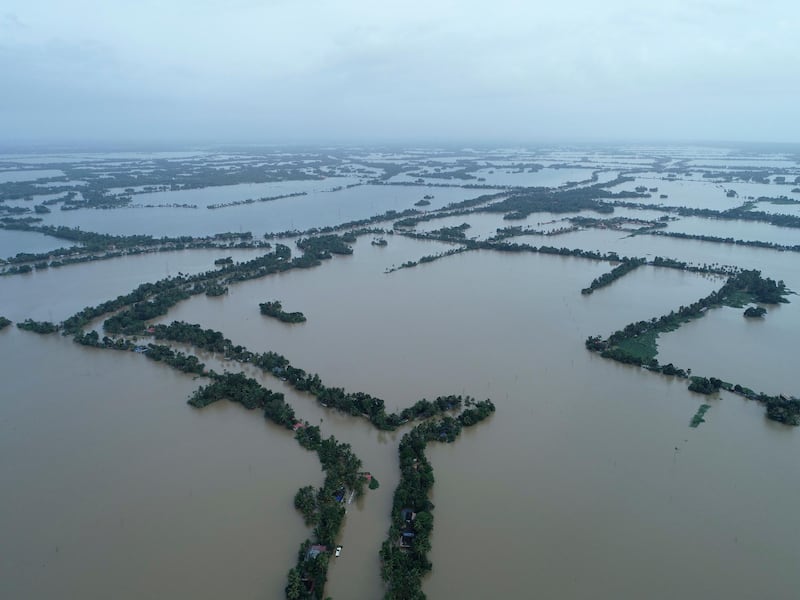The devastating flooding in the Indian state of Kerala has sparked debate over whether climate change is intensifying extreme weather events.
More than a third more rain than average has fallen in the monsoon-ravaged state, creating the worst floods since 1924, killing more than 350 people and leaving hundreds of thousands in relief camps.
Monsoons overall are expected to get wetter as the climate warms, according to Professor Timothy Osborn, director of the climatic research unit at the University of East Anglia in the United Kingdom.
“The warmer atmosphere holds more water vapour, and generally the land is warming more quickly than the oceans, and the difference in temperature between the land and oceans is what drives the monsoons,” said Prof Osborn, a lead author of the fifth assessment report published by the Intergovernmental Panel on Climate Change.
“As well as the average monsoon rainfall increasing, when you get more moisture in the warmer atmosphere, the intensity of individual rain events is likely to increase.”
In addition to having an impact on weather patterns through the “thermodynamic” effect of a warmer atmosphere, climate change also has “dynamic” effects involving changes in atmospheric circulation.
In the area affected by the floods, this dynamic effect is thought to be intensifying, not weakening, the thermodynamic effect.
________________
Kerala floods:
Where in the UAE to donate to Kerala floods relief
[ Indian businessmen pledge millions of dirhams to UAE's relief campaign for flood-stricken Kerala ]
UAE's rich and poor unite to help Kerala flood victims
________________
“From what I've seen in conversations with colleagues, there seems to be in increase in the likelihood of extreme precipitation in that region,” said Dr Friederike Otto, associate professor in the Global Science programme at the University of Oxford.
A prominent Indian scientist and environmentalist, Dr Madhav Gadgil, has blamed human activity for making the flooding worse, and that exploitation of natural resources have left the area with poor natural defences to cope with heavy rainfall.
Dr Gadgil led a panel that published a report in 2011 on environmental protection in the Western Ghats, the Indian mountain range that runs through several states, including Kerala.
In comments published by The Indian Express, he said that "had proper steps been taken," the scale of the tragedy would have been "nowhere near" what has resulted.
In particular, Dr Gadgil said illegal stone quarrying had made flooding worse, while his 2011 report blamed deforestation and development for the silting up of lakes.
“I am quite convinced that the last several years' developments in the state have materially compromised its ability to deal with events like this and greatly increased the magnitude of the suffering that we are seeing,” he said.






